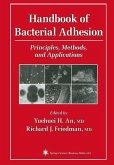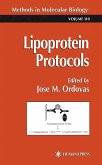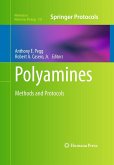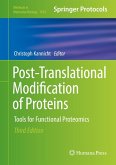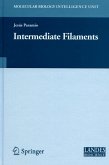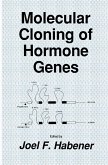The majority of all proteins undergo posttranslational modifications that significantly alter their physical and chemical properties, including their folding and conformation distribution, their stability, and, consequently, their activity and function. In Posttranslational Modifications of Proteins: Tools for Functional Proteomics, Christoph Kannicht and a panel of highly experienced researchers describe readily reproducible methods for detecting and analyzing the most important of these modifications, particularly with regard to protein function, proteome research, and the characterization of pharmaceutical proteins. Among the methods presented are those for analyzing the assignment of disulfide bond sites in proteins, protein N-glycosylation and protein O-glycosylation, and oligosaccharides present at specific single glycosylation sites in a protein. Additional powerful techniques facilitate the analysis of glycosylphosphatidylinositols, lipid modifications, protein phosphorylation and sulfation, protein methylation and acetylation, a-amidation, g-glutamate, isoaspartate, and lysine hydroxylation. Comprehensive and state-of-the-art, Posttranslational Modifications of Proteins: Tools for Functional Proteomics serves as a highly practical guide for all investigators of protein structure-function relationships not only in chemical and pharmaceutical research, but also throughout the rapidly growing field of functional proteomics.
Dieser Download kann aus rechtlichen Gründen nur mit Rechnungsadresse in A, B, BG, CY, CZ, D, DK, EW, E, FIN, F, GR, HR, H, IRL, I, LT, L, LR, M, NL, PL, P, R, S, SLO, SK ausgeliefert werden.
"As indicated by the editor, this book will be useful to researchers involved in elucidating protein structure and function as well as those working to design proteins with specific function...this book offers detailed analytical protocols for identifying and characterizing most types of co- and post- translational modifications" - Pharmaceutical Research
"This book provides researchers in the biological sciences with the most updated methods to investigate co- and/or post-translational modifications of proteins...Either trained professionals and students working in the field of proteomics can take benefit for their research." - Proteomics
"It will definitely find appreciative readers among a wide audience of glycobiologists, biochemists, molecular biologists, biotechnologists, and researchers specializing in pharmacology and molecular medicine. This book will be a very useful tool for teachers and students of universities and institutes." -Biochemistry
"This book provides researchers in the biological sciences with the most updated methods to investigate co- and/or post-translational modifications of proteins...Either trained professionals and students working in the field of proteomics can take benefit for their research." - Proteomics
"It will definitely find appreciative readers among a wide audience of glycobiologists, biochemists, molecular biologists, biotechnologists, and researchers specializing in pharmacology and molecular medicine. This book will be a very useful tool for teachers and students of universities and institutes." -Biochemistry



